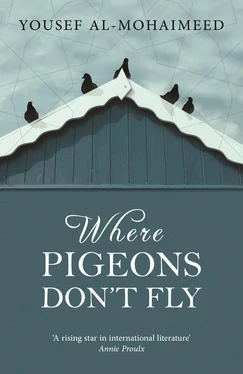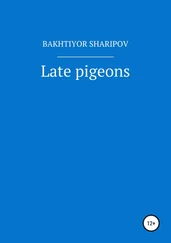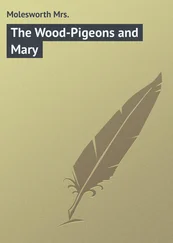One tribe stipulated that when Ibn Urai’ar fell they should have Saman and its renowned watering places of Lahaba, Qaraa and Lasafa. A second demanded al-Sharaf, the night-dark she-camel owned by the king, while a third tribe asked for the stallions that stamped the ground like lightning. The last tribe’s condition was that it be granted a feather. No more than a feather from the king’s house. No more than a feather perhaps, but its seizure meant the fall of the king and its transferral to another tribe meant the transferral of pride, prestige and glory. Umm al-Duhour was its name, The Mother of the Ages, because, over the ages, it had ceaselessly conveyed glory from one tribe to another. It was the desert’s plaything: a toy possessed by the blood that watered the desert sands and raised up the boxthorn and acacia shrubs that stand in the blazing noonday heat like hanged men, forever gazing earthwards.
A savage battle swallowed up the horses, camels and men, a battle whose contestants drew no pleasure from that clement March of 1823, its cloudless skies, a daisy growing, enticing and beautiful, a rainfall’s remnant in pits and dips and fissures, the song of a bird that soared aloft into the heart of heaven then fell like a stone, heralding the coming spring. Nothing in this land could trump the gush of fresh blood, no voice could be heard above the clash of swords. There could be no gentle silent nights while the feather was denied its secure, untroubled slumber upon the door of a house where a man, cruel-featured and severe, gazed out each dawn to the horizon, ready for the first speck of dust to rise from the columns of horses stamping the earth and rolling forward with horsemen on their backs whose faith in victory is drowned out only by their panting breaths and the thrum of their wild, untethered pennants in the chill breeze of a restless dawn.
Fahd always wondered what had happened to this country, so completely changed from the land it had been two centuries before: black oil, wide well-lit streets, towering buildings and skyscrapers.
‘Has anything changed here?’
He pointed to his head as he addressed Saeed. It was evening and they were watching yet another television programme on camel dressage and the ‘revitalisation of the tribes’ and their alarming quarrels. Saeed was scornful. ‘They used to put their money on religion and now, after the terrorism and bombings could it be that they’re thinking of a return to the tribe?’
Centuries ago, poems were newsletters, spreading word of a tribe’s heroism and glory. Later neighbourhood walls took on the role, with local kids boasting of their lineage, challenging other tribes with tales of their bravery and magnificent deeds and signing their words with a tribal mark. The tribes entered the age of the Internet and satellite television while their worldview continued to revolve around depredation, murder and kidnap: seizing the feather and bringing the kingdom down.
— 56 —
OF THE VILLAGE ITSELF, sleeping in the embrace of the Nafud desert, its tall palms breathing in the bashful breeze, Fahd remembered a funny story his father would tell whenever the discussion turned to the banning of music. It was a story about the wanton wooden door in his grandfather’s house in Muraidasiya which took to squeaking when opened and closed due to rust in one of its hinges, a gentle music to wake people from their afternoon nap.
‘The pipes of al-Safeelawi are playing!’ the old women would cry.
The old man felt compelled to take prompt action to nip the scandal in the bud and considered smearing the hinge in cooking oil to silence the squeak once and for all. It was as though for a century past life out here could not bear to hear any sound save that of speech. Men’s speech, Fahd thought, for a woman’s words were also forbidden.
A century before, the Brotherhood had unsheathed their swords and brandished their iron souls. At Mount Arafat, in poor ragged thaubs and squat white turbans wound about their heads, not one hesitated to wave his sword and utter from his heart, ‘I am a horseman of tawheed ! I am a Brother! Enemy of God, show yourself!’ at the vainly prancing Egyptian convoy, led by two buglers with armed horsemen in their wake. No sooner had the trumpets sounded, thundering off Arafat to clear the convoy’s way, than the white-turbaned men descended on the convoy with their glittering swords. One man drew his slender blade and opened up the stomach of a bugler, who stopped his blowing, the trumpet dangling from his mouth and trembling like a thorn tree’s branch. The Egyptian horsemen poured fire on the Bedouin knights until some fell and those who could, fled, weighed down with the sorrow and shame of abandoning the True Word and religion’s victory. Most, however, were content that the Satanic music had been stilled forever, never to return to sacred soil now that relations with Egypt were so irrevocably soured.
Years later, the grandfather would neglect to treat his wanton door.
Three Brothers stopped by carrying thorn tree staffs and knocked upon the massive wooden door to chastise Ali al-Safeelawi for the squeaking hinge which woke all Muraidasiya: a forbidden sound that must be prevented and silenced and if it was not, then Exalted God would pour molten lead into Grandfather Ali’s ears on the Day of Reckoning. As they shook their staffs in his face, Ali’s face grew very pale, not because of their presence or their threats, but because he had been shamed: in the depths of the house his wife was rhythmically rocking little Hissa and mournfully singing,
‘How happily you sing, little pigeon,
Up there on the green palm fronds,
But how sad I’d be for you if Salama found you there,
He’d leave you moaning like he left me,
He broke my bones, may God break his,
See the bruises his staff left on my brow.’
As soon as Ali had come away from the door he gave her kick. ‘Shut up woman! Embarrassing me, like that! May God shame you before His servants!’
The Brothers were unforgiving, ready to oppose any new invention they did not understand. Heresy, they called it — it must be repudiated! — a work of magic and the dark arts that had no place in the House of Islam. To stay silent on the matter would anger God.
From Abdallah Bin Hassan to His Excellency, the Respected and Foremost of Imams, Abdel Rahman Aal Faisal, may God relieve him of all woe and burdens and deliver him from those who seek to deceive him, Amen.
The Peace and Mercy of God and His blessings be always upon you, and with all inquiries after your good health and all due celebration and respect, and hoping that our news may bring you joy in every respect, for which we thank God, we beg leave to inform your Majesty that on the nineteenth day of Shawwal we arrived at Buraida and finding all well by the grace of God, we looked into the meeting between the Brothers and al-Ibn Abdel Aziz on the occasion of his arrival in Buraida. This meeting, however, was postponed on account of matters that the Brothers raised, seeking the response of al-Ibn. To wit: the matter of the telegraph and the cablegram and the matter of the customs offices, all of which they ask be removed after the pilgrimage.
Sheikh Abdullah and Sheikh Omar Aal Saleem sent word to them, explaining that neither they nor the other sheikhs considered these things forbidden. At this the Brothers came to them and spoke frankly, refusing to accept their judgment and stating that either these things are destroyed or the Brothers would take to the Hejaz during the pilgrimage and render it impassable. Fearful of harm befalling Islam, Muslims and the customs houses, al-Ibn, may God grant him peace, responded to their demands and asked them to defer action until the end of Ashoura, when he would decide whether to destroy the customs houses himself or license them to do so in his stead and provide them with assistance.
Читать дальше












